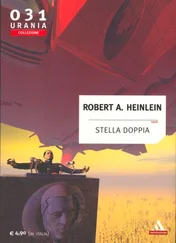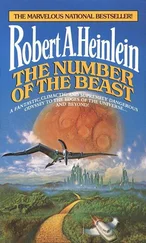Robert Heinlein - Expanded Universe
Здесь есть возможность читать онлайн «Robert Heinlein - Expanded Universe» весь текст электронной книги совершенно бесплатно (целиком полную версию без сокращений). В некоторых случаях можно слушать аудио, скачать через торрент в формате fb2 и присутствует краткое содержание. Жанр: Фантастика и фэнтези, на английском языке. Описание произведения, (предисловие) а так же отзывы посетителей доступны на портале библиотеки ЛибКат.
- Название:Expanded Universe
- Автор:
- Жанр:
- Год:неизвестен
- ISBN:нет данных
- Рейтинг книги:4 / 5. Голосов: 1
-
Избранное:Добавить в избранное
- Отзывы:
-
Ваша оценка:
- 80
- 1
- 2
- 3
- 4
- 5
Expanded Universe: краткое содержание, описание и аннотация
Предлагаем к чтению аннотацию, описание, краткое содержание или предисловие (зависит от того, что написал сам автор книги «Expanded Universe»). Если вы не нашли необходимую информацию о книге — напишите в комментариях, мы постараемся отыскать её.
Expanded Universe — читать онлайн бесплатно полную книгу (весь текст) целиком
Ниже представлен текст книги, разбитый по страницам. Система сохранения места последней прочитанной страницы, позволяет с удобством читать онлайн бесплатно книгу «Expanded Universe», без необходимости каждый раз заново искать на чём Вы остановились. Поставьте закладку, и сможете в любой момент перейти на страницу, на которой закончили чтение.
Интервал:
Закладка:
Since we couldn't ask our standard comparison questions, Mrs. Heinlein devised some "innocent" ones, and I concentrated on certain signs; both of us were sizing up population. At that time the USSR claimed a population of 225,000,000 and claimed a population for Moskva of 5,000,000 +. (Today, twenty years later, they claim almost 300,000,000 and over 7,000,000.)
For many days we prowled Moskva - by car, by taxi when we did not want Intourist with us, by subway, by bus, and on foot. In the meantime Mrs. Heinlein, in her fluent Russian, got acquainted with many people - Intourist guides, drivers, people who picked us up on the streets, chambermaids, anyone. The Russians are delightful people, always happy to talk with visitors, in English if they know it (and many do), in Russian if they do not.
Let me add that, if it suited her, Ginny could charm pictures off a wall.
She was able to ask personal questions (but ones people anywhere usually are pleased to answer) by freely answering questions about us and showing warm interest in that person - not faked; she is a warm person.
But, buried in chitchat, she always learned these things:
How old are you?
Are you married?
How many children do you have?
How many brothers and sisters do you have? What ages?
How many nieces and nephews do you have?
Put baldly, that sounds as offensive as a quiz by a Kinsey reporter. But it was not put baldly - e.g., "Oh, how lucky you are! Gospodin Heinlein and I didn't even meet until the Great Patriotic War... and we have no children although we wanted them. But we have lots of nieces and nephews." Etc., etc. She often told more than she got but she accumulated, painlessly, the data she wanted, often without asking questions.
One day we were seated on a park bench, back of the Kremlin and facing the Moskva river, with no one near us - a good spot to talk; a directional mike would have to be clear across the river as long as we kept our backs to the Kremlin.
I said, "How big does that guide book say this city is?"
"Over five million."
"Hmmph! Look at that river. Look at the traffic on it." (One lonely scow - ) "Remember the Rhine?" We had taken a steamer up the Rhine three years earlier; the traffic was so dense the river had traffic lights on it, just like the Panama Canal. "Ginny, this dump isn't anything like five million. More the size of Copenhagen, if that. Pittsburgh. New Orleans. San Francisco, possibly." (These are all cities I know well, on foot and by every form of transportation. In 1960 all of them were in the 600,000 - 800,000 range.) "Yet they are trying to tell us that this dump is bigger than Philadelphia, bigger than Los Angeles, bigger than Chicago. Nonsense."
(I have lived in all three cities. A big city feels big, be it Yokohama or New York.) "Three quarters of a million, not five million."
"I know," she agreed.
"Huh?"
(I think I must mention that Mrs. Heinlein is a close student of Russian history, history of the Russian Revolution, history of the Third International or Comintern, and so skilled in Marxist dialectical materialism that she can argue theory with a Russian party member and get him so mixed up that he's biting his own tail.)
She answered, "They claim to have finished the War with about two hundred million and Moscow at four million. Now they are claiming twenty - five million more in the Union, and over a million increase in Moscow." She thought a bit. "It's a lie. Unless they are breeding like flies everywhere outside Moscow, they have lost population since the War - not gained. I haven't found even one family with more than three children. The average is less than two. And they marry late. Robert, they aren't even replacing themselves."
She looked at that empty river. "Not quite as big as Copenhagen is my guess."
We stopped in many other cities - Alma Ata, Tashkent, Samarkand, Minsk, Vilno, Kiev, Riga, Leningrad, etc. - and she continued her gentle questioning but never found reason to change her opinion. Even out in the Muslim countries of Turkestan the birthrate was low, or the answers seemed to show it. She did not write down her figures (Well, I don't think she did; I warned her not to) but she has a memory that is effectively perfect as long as necessary.. . then she can wash out useless details, which I can't do.)
How was it possible for the Russians to claim that Moscow was seven times as big as it actually was? How could I be right and the whole world wrong? The World Almanac gave the same figures the Russians did, all news services seemed to accept Russian population figures - how could a Big Lie that big not be noticed - and denounced?
About a year later I had a chance to discuss it with an old shipmate, an admiral now retired but then holding a major command. I asked him how many people there were in Moscow.
He answered, "I don't know. Why don't you look it up?" (When a high brass answers, "I don't know," he may mean, "Don't be nosy and let's change the subject." But I persisted.)
"Make a guess. You must have some idea."
"Okay." He closed his eyes and kept quiet for several minutes. "Seven hundred and fifty thousand, not over that."
(Jackpot!)
I said, "Mister Ought Ought Seven, have you made a special study of Russia? Or shouldn't I ask?"
"Not at all. This command gives me all the trouble I need without worrying about Russia. I simply worked it as a logistics problem, War College style. But I had to stop and visualize the map first. Roads, rivers, railroads, size of marshalling yards, and so forth. You know." (I did, vaguely. But I wasn't a War College graduate. He is.) "That city just doesn't have the transportation facilities to be any bigger than that. Get much over three quarters of a million and they'd starve. Until they double their tracks and increase their yards they can't risk a bigger population. You don't do that over night. They can pick up some slack with the river - but it doesn't go where they need it most."
And there it stands. Either all three of us are crazy despite the fact that all three of us got the same answer to a numerical question using three entirely different but logical methods... or for many, many years the Kremlin lie factory has peddled their biggest and fanciest "Pravda" without ever being questioned.
Look - both the Pentagon and the State Department know exactly how big Moscow is, and the Kremlin knows that they know. We were high - flying 'em with the U - 2 for four years; you can bet Moscow was carefully photographed many times. Our present Eye - in - the - Sky satellites are so sharp - eyed that they can come close to reading the license plate on your car; our top officials know precisely what the logistics situation is for Moscow - and every economist knows that one of the parameters that controls strictly the upper limit to the size of a city is how many tons of food it can ship in, week in and week out, never failing. Most big cities are only a day or two away from hunger, only a week or so away from beginning starvation and panic.
Moscow isn't even a seaport; she's a river port and not a good one. Most food must come overland by train or lorry.
Maybe she's built enough more facilities since 1960
but in 1960 she just didn't have what it takes. Since I can't believe the 5,000,000+ figure for 1960, I don't believe the 7,000,000+ figure for this year.
I have one very wild theory. Our State Department may see no advantage in calling them liars on this point. Through several administrations we have been extremely careful not to hurt their feelings. I think this is a mistake but I am neither president nor secretary of state; my opinion is not important and may be wrong.
(" 'But the Emperor is not wearing any clothes,' said the child.")
The three biggest lies in the USA today:
Читать дальшеИнтервал:
Закладка:
Похожие книги на «Expanded Universe»
Представляем Вашему вниманию похожие книги на «Expanded Universe» списком для выбора. Мы отобрали схожую по названию и смыслу литературу в надежде предоставить читателям больше вариантов отыскать новые, интересные, ещё непрочитанные произведения.
Обсуждение, отзывы о книге «Expanded Universe» и просто собственные мнения читателей. Оставьте ваши комментарии, напишите, что Вы думаете о произведении, его смысле или главных героях. Укажите что конкретно понравилось, а что нет, и почему Вы так считаете.











